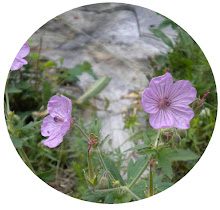From the July 22nd bulletin:
God Is Our Shepherd:
Psalm 23, Jeremiah 23,
and Hymn 666
Part
of the message for God’s people that is recorded in Jeremiah included a warning
to the leaders of Israel who were leading their people astray. “You have scattered my flock and have driven
them away, and you have not attended to them.
Behold, I will attend to you for your evil deeds,” declares the LORD
(Jer. 23:2). The message that Jeremiah
brought to Israel resonates well with us today; there are those in our society
who would lead us astray, even some who call themselves Christians. In Psalm 23 we acknowledge that “even though
I walk through the valley of the shadow of death, I will fear no evil” (verse
4). Both the last part of this verse and
the opening stanza of our closing hymn, O
Little Flock, Fear Not the Foe (LSB 666), remind us that in spite of the
unrighteousness that surrounds us, we should not despair. Even though Israel was under the influence of
bad shepherds, Jeremiah was reassuring them when he proclaimed: “I will set shepherds over them who will care
for them, and they shall fear no more, nor be dismayed, neither shall any be
missing,” declares the LORD (Jer. 23:4).
We see numerous examples in the Old Testament that no mere human can be
a perfect shepherd for God’s people.
Thanks be to God that Jesus has fulfilled this role and is our Good
Shepherd (John 10:11)! We can proclaim
with David that “The LORD is my
shepherd” (Ps. 23:1, emphasis added). He
fulfills our every need and we can “leave it to Him, our Lord” (stanza
two). Since the LORD is our
righteousness (Jer. 23:6), “not earth nor hell’s satanic crew against us shall
prevail” (stanza three). We know that we “shall dwell in the house of the
LORD forever” (Ps. 23:6) and “so shall Thy saints and martyrs raise a mighty chorus
to Thy praise forevermore. Amen” (stanza
4)!
-Kristen
“Salvation belongs to
our God who sits on the throne, and to the Lamb!
For the Lamb in the
midst of the throne will be their shepherd,
and he will guide them
to springs of living water,
and God will wipe away
every tear from their eyes.”
Rev. 7:10b and 17
